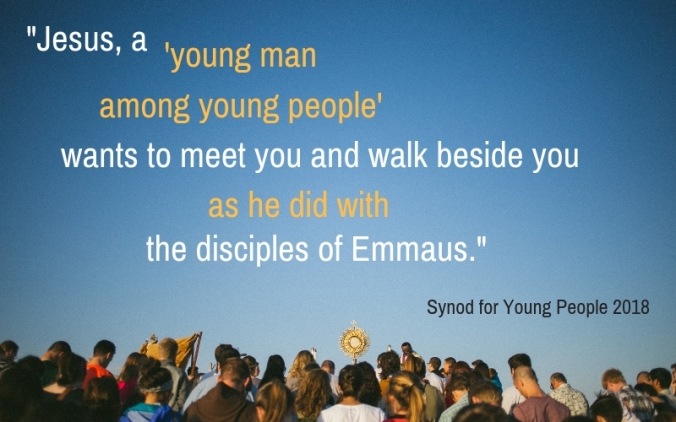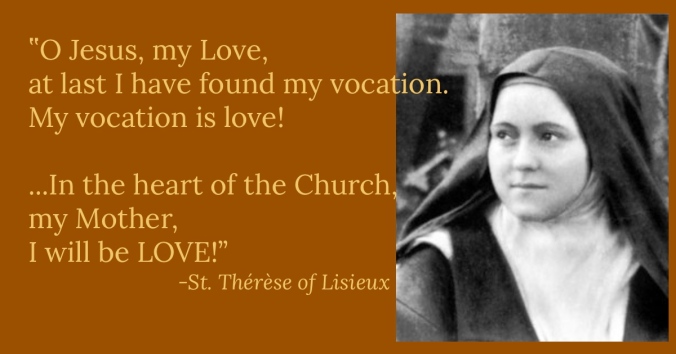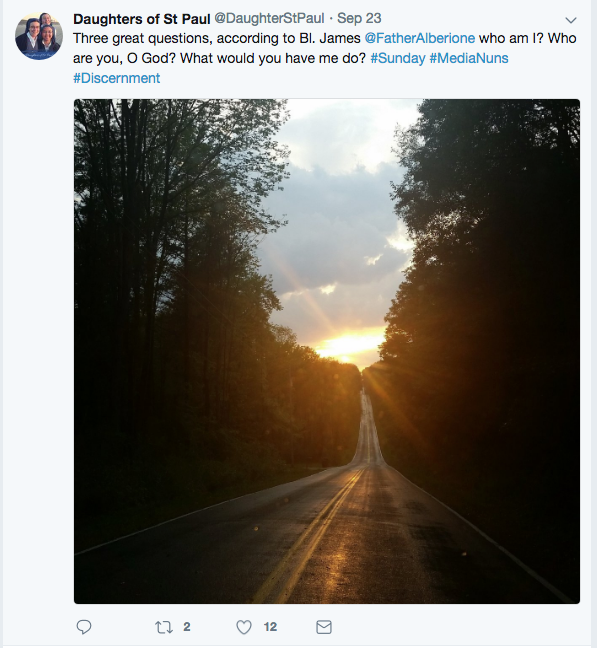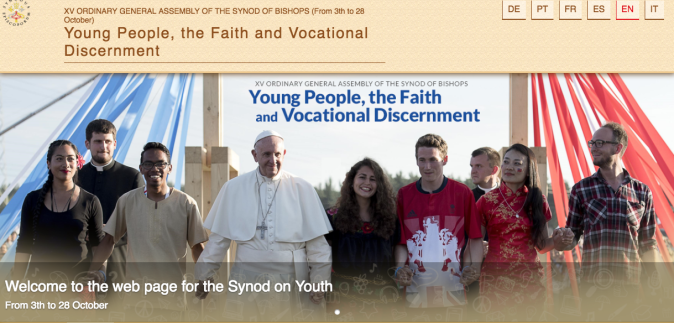
A few weeks ago at daily Mass, we had the beautiful reading from Ecclesiastes 3:1-11 about the seasons of life:
For everything there is a season, and a time for every matter under heaven: a time to be born, and a time to die; a time to plant, and a time to pluck up what is planted; a time to kill, and a time to heal; a time to break down, and a time to build up; a time to weep, and a time to laugh; a time to mourn, and a time to dance… – Ecclesiastes 3:1-3
This reading from Ecclesiastes reminds us that God guides the events of our lives, and that there is a gift from God in every season, or time, that we live in. The very temporariness of the time we live and the transitions we undergo are a reminder of the timelessness of God and the longing for the eternal that God has put in our hearts. “God has made everything appropriate to its time, and has put the timeless into their hearts” (v. 11). This line is probably why I most often hear this passage read at funerals—and it is a great choice for a funeral Mass. And yet, this passage has so much wisdom to offer at other times, even as we journey through the seasons of nature.
The seasons of nature can be reflected in our spiritual life. Sometimes, when a great deal is going on in our lives, an “easy in” to reflecting on what is happening interiorly is to look at our spiritual life in this light of what season we are living.Perhaps as you read this—or another time today—you can take a few moments to reflect on what spiritual “season” or “moment” from Ecclesiastes 3 you most identify with at this time in your life.
* * *
I first started praying with the seasons of my heart years ago as a young religious. Recently, I was reminded of how helpful that can be by the last few pages of Parker Palmer’s lovely book on vocation, Let Your Life Speak. (Palmer, who is a member of the Religious Society of Friends [Quaker], talks about failure as an important part of discernment: how failure can be a clear indication from God that we are meant to turn in another direction–or to see what has been in front of us all along.) Quoting Thomas Merton about “the hidden wholeness” in all visible things, Palmer speaks of autumn’s metaphor for our spiritual lives:
In the visible world of nature, a great truth is concealed in plain sight: diminishment and beauty, darkness and light, death and life are not opposites. They are held together in the paradox of “hidden wholeness.”
…Autumn constantly reminds me that my daily dyings are necessary precursors to new life.
– Parker Palmer, Let Your Life Speak, pp. 99-100
The bittersweet richness of autumn in nature has made it my favorite season, because it always seems to speak to wherever I am in the spiritual life. Autumn is a season where change is perhaps most striking in nature. Above all, autumn is a season for the strenuous work of reaping and harvesting, and for enjoying the fruits of the harvest.
All the aspects of the season of autumn are connected to the most stark result at its end: the death or seeming-death of the natural world surrounding us, so much so that it changes from rich shades of green to a dull brownish-gray. What is so powerful about this aspect of autumn is that, if seen as part of the whole of all four seasons of the year, autumn also becomes a time of preparing for new life. Clearing the gardens and even planting the bulbs which will stay buried deep in the ground all through winter, but will burst through and blossom in the spring.
In our spiritual lives, we can be going through “autumn” when we are living a time of transition—with something ending and something else beginning. It is a time to recognize the gifts and graces that we have received—and their transitoriness gives a special intensity to our gratitude. The spiritual season of autumn can be a time for a fresh start, but it can also be a time of loss accompanied by grief and a sense of emptiness. It can be a time of hidden preparation for something that we cannot yet imagine. Spiritually, our season of autumn leads us to live in the spirit of the Cross—the daily “dying to self” that all Christians are called to.
We witness and benefit from this self-emptying love of Christ every time we participate at Mass. And we are called to daily share in the suffering and death of Jesus, the “dying to self” that means carrying the Cross entrusted to us. Following Christ means that we are called, in a way, to always live in the “spirit” of autumn—that generous, self-giving spirit that lets go—when it is time—to whatever is precious and to allow ourselves—like a brilliant maple leaf—to float to the ground, trusting in God’s loving care. For me, the beauty of the falling autumn leaves helps me to recognize the beauty of my living Jesus’ self-giving love: the dying-to-self kind of love. Even when it is painful. Even when I am tempted to cling to what I know I need to let go of. Even when I am terrified of letting go.
Because a really important aspect of following Christ is that we come to know and trust, on a deeper and deeper level, who God is for us: the God who always brings new life. Ecclesiastes 3 is a powerful reminder of who God is in our ever-changing lives: that God provides in each season for us, and that we are always—especially when we don’t feel like we are—cherished and being brought to resurrection. Truly praying this passage from Ecclesiastes is an act of trust, an act of surrender that God will be with us in every season.
Prayer Suggestion: Take some time to read and reflect on Ecclesiastes 3:1-11, and conclude your lectio by praying it as a canticle of surrender to God’s plan for your life.









 This month of August, 2018, I’ll be leading the spiritual accompaniment on My Sisters, an online community devoted to helping people meet Christ and experience his love in their daily life. Created by my community, the religious sisters of the Daughters of Saint Paul, My Sisters is a portable and accessible “sacred space” for asking the big questions, exploring the faith, and nurturing our identity as God’s beloved one, no matter where we are in our walk with the Lord.
This month of August, 2018, I’ll be leading the spiritual accompaniment on My Sisters, an online community devoted to helping people meet Christ and experience his love in their daily life. Created by my community, the religious sisters of the Daughters of Saint Paul, My Sisters is a portable and accessible “sacred space” for asking the big questions, exploring the faith, and nurturing our identity as God’s beloved one, no matter where we are in our walk with the Lord.